- Rocket man - 2nd March 2026
- Death wish two - 2nd March 2026
- News to celebrate! - 1st March 2026

During 23 years with The BBC, and 38 years in journalism (when he was trained to use clear and simple language, avoiding jargon), political stories have always been central, and here our Editor Phil Parry looks at how the release of the UK Government’s long-awaited report was subtitled ‘Levelling Up the United Kingdom’, but didn’t include Wales, Scotland or Northern Ireland.
In the past he has described how he was helped to break into the South Wales Echo office car when he was a cub reporter, recalled his early career as a journalist, the importance of experience in the job, and making clear that the ‘calls’ to emergency services as well as court cases are central to any media operation.

He has also explored how poorly paid most journalism is when trainee reporters had to live in squalid flats, the vital role of expenses, and about one of his most important stories on the now-scrapped 53 year-old BBC Cymru Wales (BBC CW) TV Current Affairs series, Week In Week Out (WIWO), which won an award even after it was axed, long after his career really took off.
Phil has explained too how crucial it is actually to speak to people, the virtue of speed as well as accuracy, why knowledge of ‘history’ is vital, how certain material was removed from TV Current Affairs programmes when secret cameras had to be used, and some of those he has interviewed.

Earlier he disclosed why investigative journalism is needed now more than ever although others have different opinions, and how information from trusted sources is crucial at this time of crisis.
After the release last week of the huge report into ‘levelling-up’ Britain, crucial questions remain.
For example, it will be interesting to see how the policy (which is a cornerstone of this Conservative UK Government’s strategy) could affect Wales – if it does so at all.
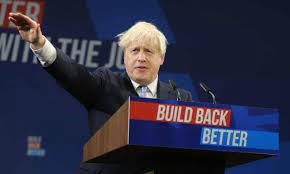
In his speech to the Tory faithful at their conference last October, Wales didn’t get a look in!
Boris Johnson mentioned only England saying: “In Ribble Valley… they live seven years longer than the people of Blackpool only 33 miles away”.
The politics of all this, though, are as clear as day, and it is thought by The Conservatives, to be an important attraction for voters in the May local elections – which, presumably, includes those in Wales.

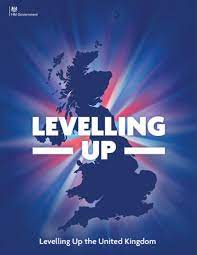 Yet the agenda applies just to England, even though the subtitle for the report last week was: “Levelling Up the United Kingdom”.
Yet the agenda applies just to England, even though the subtitle for the report last week was: “Levelling Up the United Kingdom”.
This is despite the fact that pockets of Wales are among the poorest in Europe.
There is a huge need for greater investment in these areas, where people are crying out for upgrades in infrastructure, but they weren’t part of the ‘levelling-up’ report at all.
Inequality WITHIN Wales (notably in the South Wales valleys and North West Wales) is also as bad as in England and, as much as the Labour Welsh Government (WG) has tried to address the problem, it remains prevalent.
Two years ago in Blaenau Gwent, for example, the average annual income was a little over £24,111 and for Gwynedd it was £25,882; meanwhile in Cardiff the corresponding figure was £30,631, while for Monmouthshire it was £31,527.
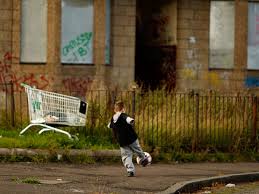
Nearly a quarter of adults and a third of children were living in poverty, with homelessness increasing, and poverty as well as deprivation in Wales being worse than in the rest of the UK.
The median weekly wage in the richest area of Wales (along the M4 corridor) is STILL only £600, whereas in central London, it is £1,138.
Even so – all the attention has been on the north of England, with the ‘levelling-up’ report only the latest example.

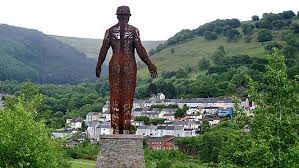
Gross Domestic Product (GDP) per worker in the Yorkshire and Humber region for instance, is just over 80 per cent of the UK average, while Gross Value Added (GVA – a measure of wealth and output) per person was between £22,000 and £24,000.
Since the 1960s, London and the regions next to it have powered ahead relentlessly.

In 1998 productivity per head in London was 65 per cent above the UK average, but twenty years later, it was 77 per cent higher!
Half of all foreign direct investment projects go to London and south east England.
Counties like South Yorkshire and cities including Rotherham, as well as villages such as Maltby have been particularly badly hit by the closure of heavy industries and the mines, with the pandemic only making a bad situation worse.
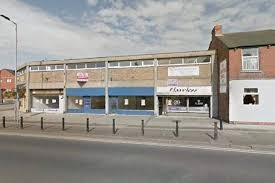
Maltby, for example, grew quickly in the early 20th century after coal started coming out of the nearby mine, but it has declined almost as fast, and now the high street is full of bargain shops.
Villages like this are top of the pile in Mr Johnson’s ‘levelling-up’ in tray (with him, perhaps, hoping that concentrating on them might deflect attention from his ‘partygate’ problems), not towns such as Ebbw Vale or Pwllheli.
England is vastly bigger than Wales, and the reality is that devolution has been as much about politics as economics.
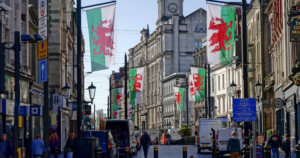
The further away families are from main routes into England, such as the M4 in the south and the A55 in the north (the revamped Heads of the Valleys road notwithstanding) the greater is the level of poverty.
Even after almost 23 years of the WG this salient fact remains true.
Devolving power appears to be flavour of the month now – at least in England – with it being the overriding theme in the ‘levelling-up’ report.

Control over more regulation is promised for many English areas, beginning with Greater Manchester and the West Midlands.
But places like Ebbw Vale and Pwllheli need support just as much, if not more, as Maltby, and deserve to be part of the ‘levelling-up’ agenda.
This is especially bizarre as the key author of the UK Government’s report on it (Michael Gove, MP) is from Aberdeen!
Perhaps the WG needs to do its own version…

The memories of Phil’s decades long award-winning career in journalism (when issues behind inequality were always studied closely) as he was gripped by the rare neurological disease Hereditary Spastic Paraplegia (HSP), have been released in a major book ‘A GOOD STORY’. Order it now!
Publication of another book, however, was refused, because it was to have included names
Tomorrow – why news that a nearby far more popular airport is expanding again, appears to have hammered another nail in the coffin of Cardiff Airport (CA) which was bought with taxpayer money for £52 million, when a Scottish equivalent was purchased for £1.











